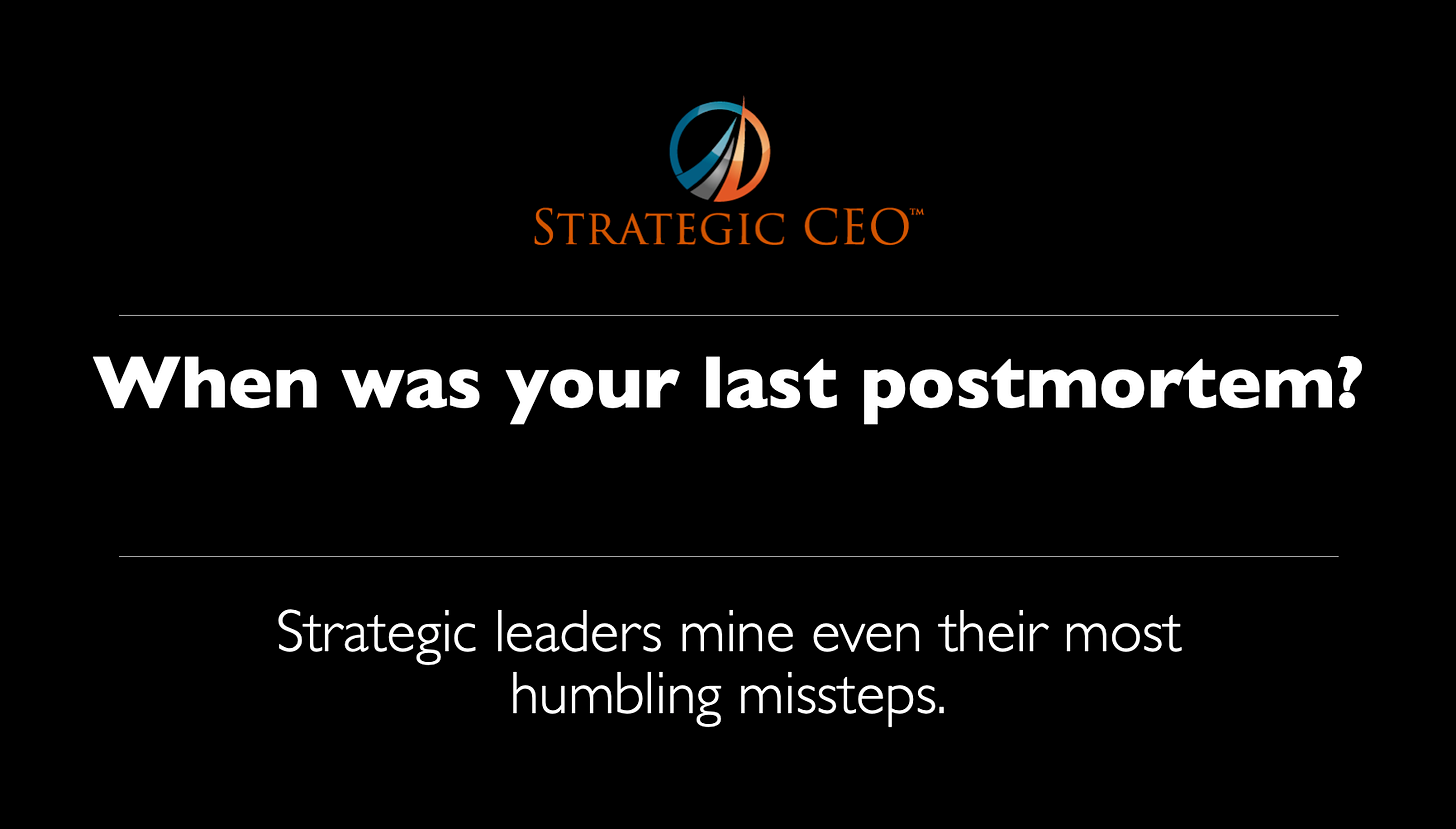THINK ON IT: When was your last postmortem?
When was the last time your organization took the time to excavate a problem thoroughly before moving on? My guess is that it’s been awhile — if ever.
The natural thing to do when a project doesn’t go well is to cut your losses and move on, getting the bad thing behind you as quickly as possible so you can focus on what’s next. But when we do that, we aren’t taking the opportunity to learn from our mistakes effectively.
We can’t rely on trial and error when we are leading an organization. We have to take the time to learn from our mistakes, or we’re just making another mistake on top of the old.
Postmortems are a crucial part of the life cycle of any project or crisis management situation. An effective postmortem helps us learn from the past, anticipate upcoming road blocks, improve team communication, take a temperature of the general morale, and check in on the anxiety levels in an organization.
Not only does a postmortem help us excavate mistakes and plan for what’s next, but it can also help to bring closure to a long or difficult project, allowing ourselves and our team to set down the burden of work-gone-wrong and move past it with grace and dignity. Nobody wants to start on a new project when they are already disheartened about a previous one, with no hope that anything is going to go better this time around. In fact, if your team isn’t aligned around a clear vision, there’s a big chance that the next project will go just as poorly as the previous — and maybe even worse.
Of course, not everything deserves a postmortem. A missed item on a checklist doesn’t need an entire meeting to come up with a better way to not miss the item again (make sure to check the list!). But a postmortem is definitely needed if the project misstep meets even one of these three criteria:
the likelihood you’ll undertake a similar project is high
the impact of the misstep is high
the effort to remedy the misstep is high
Think about the next big initiative facing your business. What could you learn from prior experiences with similar pursuits? If those learnings are not readily available, it could be that your team has a habit of thinking reactively. Institutionalizing postmortems for major projects is a great way to train your team to kick that habit.
“The postmortem for a problem can be the preamble to a solution.”
– Dan Heath
Thanks for being a subscriber to Strategic CEO. If you enjoyed this post, please share it with a friend or colleague.
Premium subscribers: Read on for a postmortem blueprint on how to conduct one.
Not a premium subscriber and want to keep reading? Upgrade to paid here.
Keep reading with a 7-day free trial
Subscribe to Strategic CEO to keep reading this post and get 7 days of free access to the full post archives.



